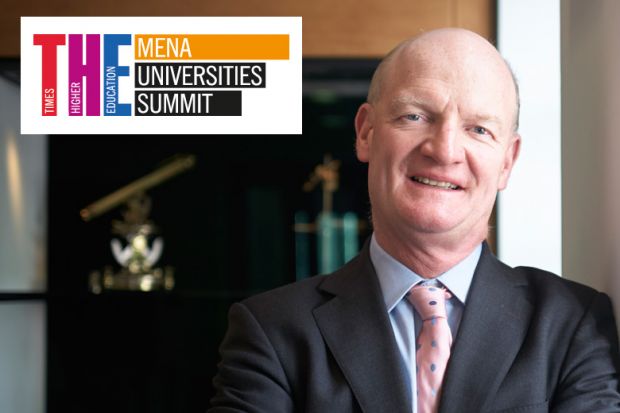Profit-making providers are best placed to meet growing demand for higher education around the world, Lord Willetts said as he opened the Times Higher Education MENA Universities Summit.
Delivering a keynote address at United Arab Emirates University, the UK’s former universities minister predicted that the growth of “mega-universities” with outposts across the globe would be one of the biggest trends transforming higher education in the next 10 years.
The peer said that, while he did not have a “particular ideological interest” in whether universities operated for private gain or not, for-profit providers had “specific advantages… when it comes to the challenge of meeting expanding demand”.
They can access capital markets to fund their growth, and are better placed to recruit the management capacity that they need to expand, he said.
In contrast, in many countries which were looking to double or even triple higher education participation, it was “hard to see how they could achieve that simply through the classic route of increasing public spending,” Lord Willetts said.
Lord Willetts said that there were now nearly 20 global chain universities, many operating for profit, educating nearly 1 million students every year; and that this part of the sector was only set to grow.
“The growth of the global chain of university, I think, is going to be one of the… very significant developments over the coming decade,” the peer said. “That brings with it the opportunity to secure qualifications recognised by employers around the world.”
In a wide-ranging address, Lord Willetts also said the fact that the number of British students who went abroad as part of their degree remained comparatively low compared to the number of international learners coming to the UK was a “source of regret and embarrassment”.
The peer said that he would continue to push for student loans to be made available to UK learners who wished to enrol in a foreign university, and he said that providers should be more flexible in their credit-allocating arrangements, to encourage short-term mobility.
Asked what he thought the biggest mistake in the creation of the Western higher education system had been, Lord Willetts answered that the centuries-long gap between the creation of the universities of Oxford and Cambridge and the founding of other institutions in England meant that these two organisations had been allowed to shape what good higher education looked like, at the expense of vocational training.
“Universities across the world do have a vocational role but that has suffered in England from not having the prestige and recognition of the classic Oxbridge-type education,” Lord Willetts said.
The THE summit, which continues until 4 February, features higher education leaders from across the Middle East and North Africa debating issues such as governance, benchmarking, and the role of universities in regional economies. The event also features a consultation session on a possible THE ranking for the region.
POSTSCRIPT:
Print headline: Lord Willetts: for-profit university chains 'best-placed to meet global demand'
Register to continue
Why register?
- Registration is free and only takes a moment
- Once registered, you can read 3 articles a month
- Sign up for our newsletter
Subscribe
Or subscribe for unlimited access to:
- Unlimited access to news, views, insights & reviews
- Digital editions
- Digital access to THE’s university and college rankings analysis
Already registered or a current subscriber?







